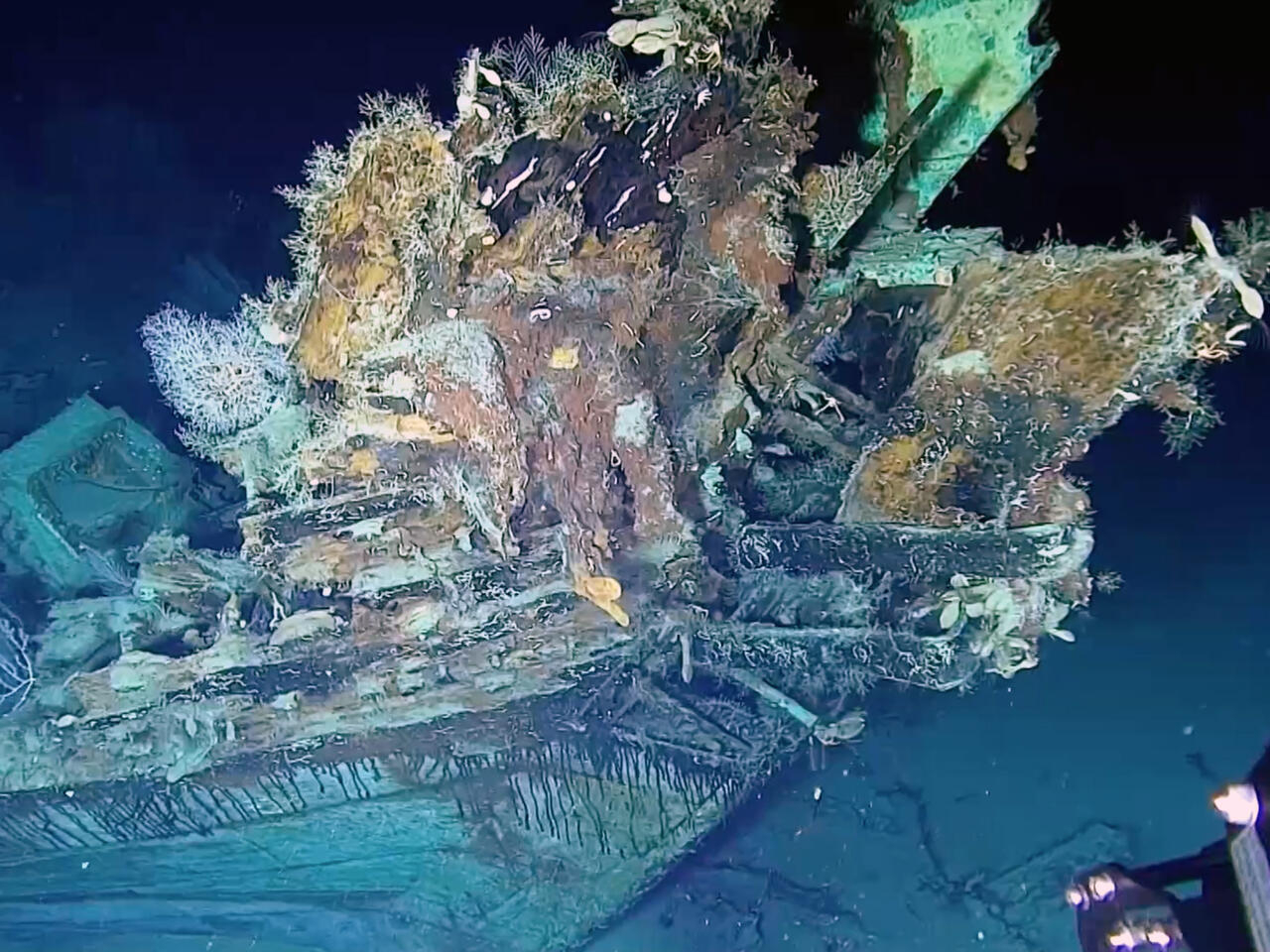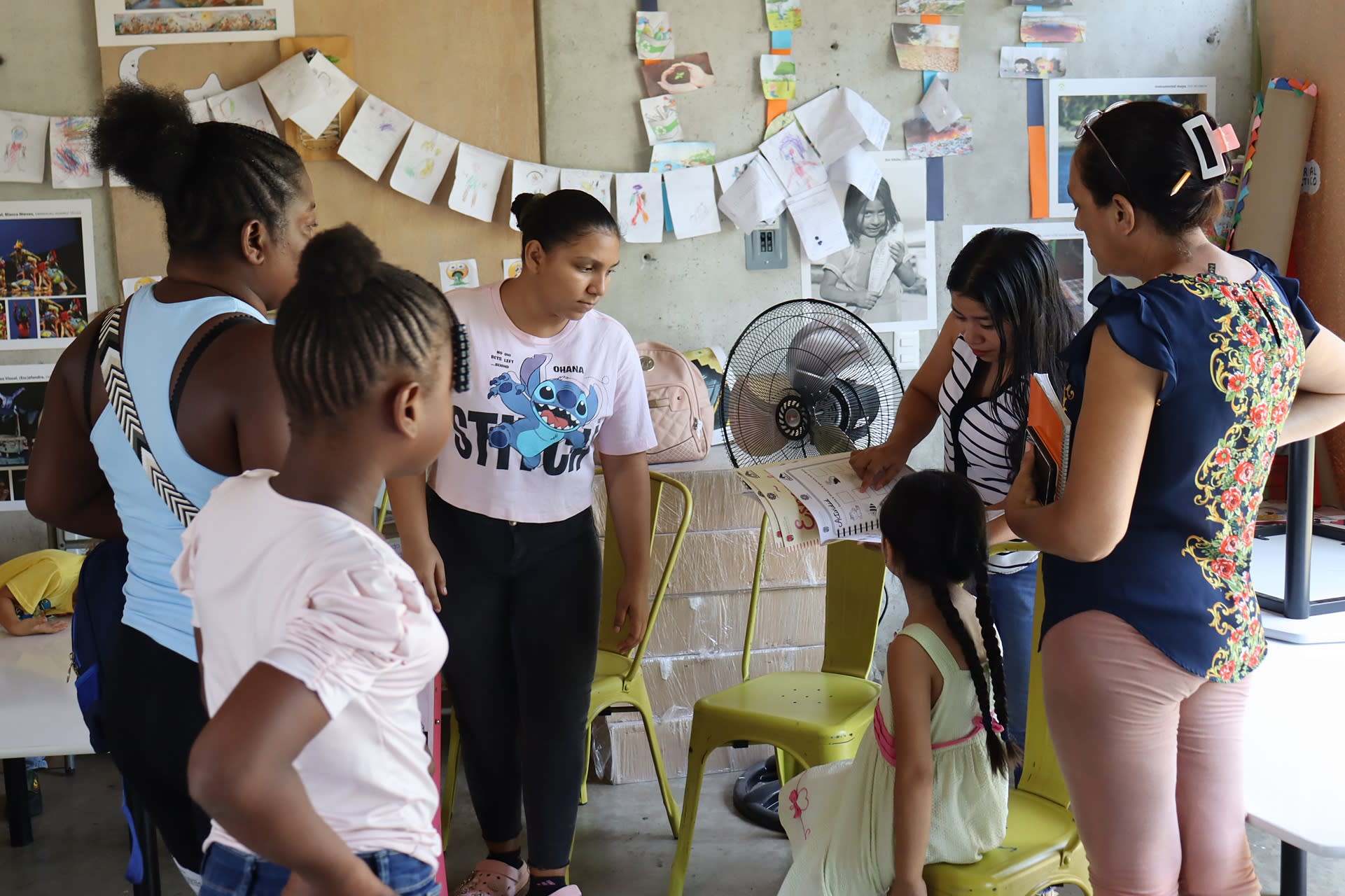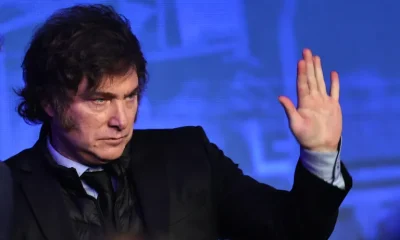International
Colombia shares unprecedented images of treasure-laden wreck

AFP
Colombia’s army has shared unprecedented images of the legendary San Jose galleon shipwreck, hidden underwater for three centuries and believed to have been carrying riches worth billions of dollars in today’s money.
Four observation missions using a remotely operated vehicle were sent to the wreck at a depth of almost 950 meters (3,100 feet) off Colombia’s Caribbean coast, the army said in a statement late Monday.
These missions, carried out by the navy under the supervision of the culture ministry, found the galleon untouched by “human intervention.”
Cannons partially covered by mud are visible alongside porcelain crockery, pottery, glass bottles and also gold pieces.
A part of the bow can be clearly seen covered in algae and shellfish, as well as the remains of the frame of the hull.
Authorities said they had also discovered two more shipwrecks during their observation mission — a colonial-era galleon and a schooner from the post-colonial period.
“Thanks to the technological equipment and the Colombian navy’s work, we managed to capture images with a level of precision that’s never been seen before,” said President Ivan Duque.
He said the wreck was “kept intact and protected with a view towards a future retrieval.”
When that happens, though, Colombia will face a challenge from Spain and an indigenous group in Bolivia to determine who keeps the bounty.
– Lost for 300 years –
The San Jose galleon was owned by the Spanish crown when it was sunk by the British navy near Cartagena in 1708.
Only a handful of its 600-strong crew survived.
It was heading back from the New World to the court of King Philip V of Spain.
At the time, it was laden with treasures estimated to be worth billions of dollars at current rates.
Before its discovery in 2015, it was long sought after by treasure hunters.
Experts believe it contains at least 200 tons of gold, silver and emeralds.
Colombia considers wrecks found in its territorial waters to be part of its cultural heritage, meaning the contents cannot be sold.
Spain insists that the bounty is theirs since it was aboard a Spanish ship, while Bolivia’s Qhara Qhara nation says it should get the treasures as the Spanish forced the community’s people to mine the precious metals.
When the wreck was discovered, then Colombian president Juan Manuel Santos lauded it as “the most precious treasure ever found in the history of the world.”
He had proposed to finance the recovery mission with the proceeds from selling part of the find, but Duque put a stop to that to ensure the entirety of the wreck would remain in Colombia.
Colombian authorities have announced their intention to create a museum of shipwrecks that would be “a source of pride for Colombia, the Caribbean and the world.”
Recovering the wreck presents a technological and scientific challenge due to its depth.
Authorities have identified another 13 sites off the coast of Cartagena that they want to explore in search of other shipwrecks.
Central America
Trump Administration Asks Supreme Court to Block Return of Deported Salvadoran

The Trump administration on Monday asked the U.S. Supreme Court to block a lower court order requiring the return of a Salvadoran migrant who was mistakenly sent to a maximum-security prison in El Salvador, despite having legal protection from deportation.
The U.S. government has until Monday to bring Kilmer Armado Ábrego García back to the United States, as ordered by Judge Paula Xinis in a Maryland court.
According to The Washington Post, the administration argues it lacks authority to comply because Ábrego García is currently in Salvadoran custody.
The U.S. had appealed Judge Xinis’ ruling to the Fourth Circuit Court of Appeals, but the court declined to act immediately—prompting the administration to take the case to the Supreme Court. In its filing, the government stated that “the Constitution entrusts the President, not federal district courts, with the conduct of foreign diplomacy and the protection of the nation from foreign terrorists, including through deportation.”
Ábrego García, a resident of Prince George’s County, Maryland, and married to a U.S. citizen, came under scrutiny in 2019 after an informant claimed he was a member of the MS-13 gang (Mara Salvatrucha).
Although he was initially slated for deportation, a judge later granted him a stay of removal after he requested asylum, according to the lawsuit.
Nevertheless, U.S. Immigration and Customs Enforcement (ICE) detained him on March 12, claiming his status had changed, and sent him to a detention center in Texas.
International
Teachers in Southern Mexico Bring Education to Stranded Migrant Children

Teachers in southern Mexico have created a program to provide classes for migrant children stranded in the region, following a year-over-year increase of over 70% in irregular migration among minors—many of whom lose months or even years of education during their journey toward North America.
In Tapachula, the largest Mexican city bordering Central America, three teachers offer preschool, elementary, and secondary education through the Chiapas State Migrant Education Program (Pemch).
This initiative has been replicated in key municipalities across Chiapas, including San Cristóbal de Las Casas, the capital Tuxtla Gutiérrez, Palenque, Comitán, and other border towns. Currently, there are around 1,345 migrant students and a total of 35 teachers working across farms and shelters.
Pablo Arriaga Velázquez, a teacher with the migrant education program in Tapachula, told EFE that the project was born in response to the large number of migrant minors, as enrolling them in regular schools is often difficult.
Central America
Mulino and Orsi Highlight Shared Vision After Panama Joins Mercosur as Associate State

The Presidents of Panama, José Raúl Mulino, and Uruguay, Yamandú Orsi, highlighted on Monday the path of integration both countries have undertaken in areas such as trade and the defense of democracy, following a meeting held at the Panamanian government headquarters.
In a brief statement to the press, both leaders emphasized that Panama and Uruguay share many values and are working together across different sectors. They also underlined a renewed connection following Panama’s accession last December to the Southern Common Market (Mercosur) as an Associated State.
“Panama has begun a new era of looking southward, seeking opportunities not only for work, business, and friendship, but also for regional integration in a positive sense. Today, I believe we have taken a decisive step in that direction,” said President Mulino.
The Panamanian leader stressed that his country and Uruguay “have much in common” and share “important values in terms of democracy, respect for institutions, and the rule of law—principles that must always be strengthened, no matter how much effort it takes.”
-

 Internacionales2 days ago
Internacionales2 days agoErik Prince Backs Ecuador’s Daniel Noboa in Fight Against Crime and “Narcoterrorism”
-

 Central America4 days ago
Central America4 days agoPanama’s former president Martinelli claims political enemies tried to kill him
-

 Central America2 days ago
Central America2 days agoGuatemala’s Legal Chief Shot Dead in Parking Lot: Investigation Underway
-

 International4 days ago
International4 days agoJavier Milei vows to work ‘side by side’ with the U.S. on trade rules
-

 Central America20 hours ago
Central America20 hours agoHonduras Hosts CELAC Summit Amid Regional Concern Over U.S. Deportations
-

 International20 hours ago
International20 hours agoTeachers in Southern Mexico Bring Education to Stranded Migrant Children
-

 Central America20 hours ago
Central America20 hours agoTrump Administration Asks Supreme Court to Block Return of Deported Salvadoran
-

 Central America20 hours ago
Central America20 hours agoMulino and Orsi Highlight Shared Vision After Panama Joins Mercosur as Associate State















